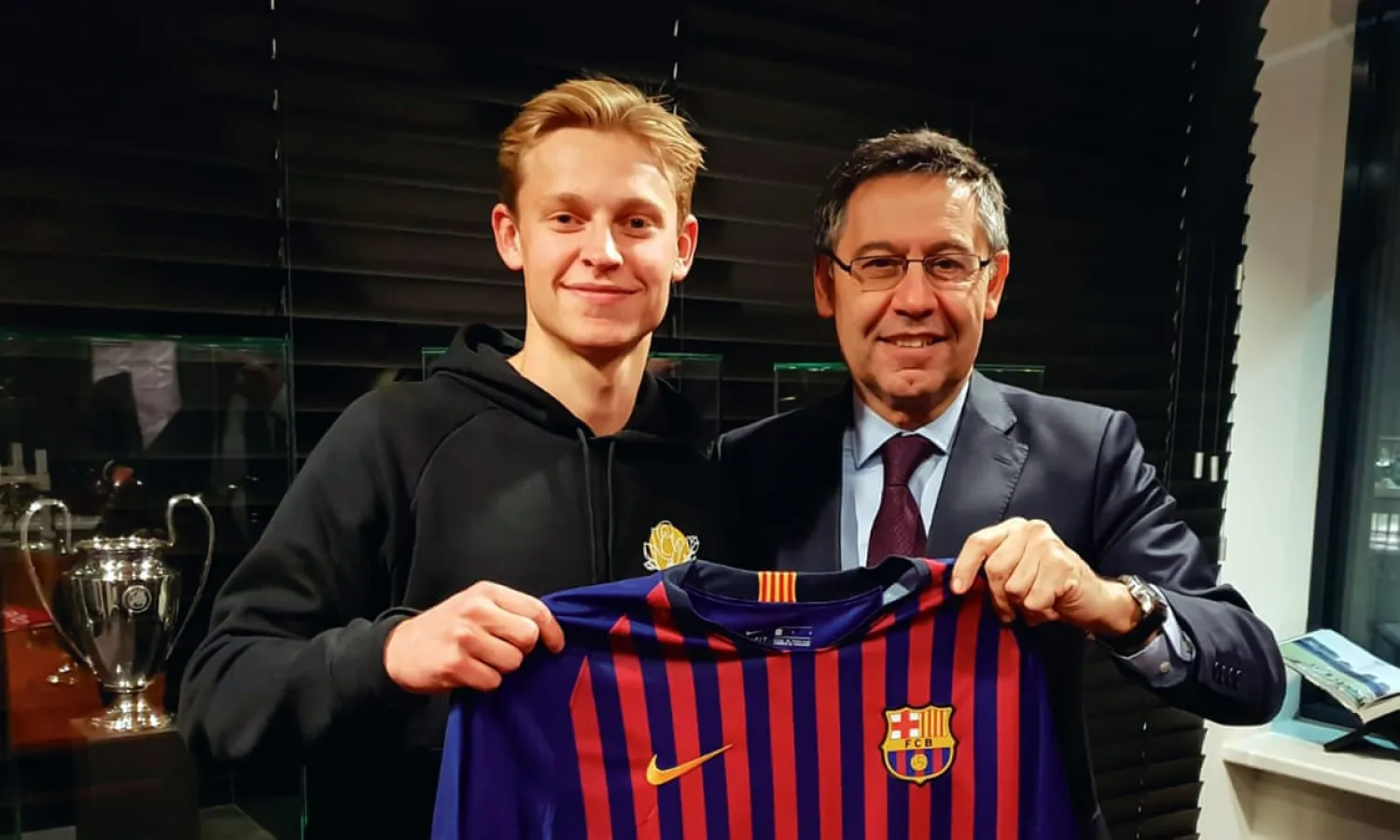According to Josep Maria Bartomeu, the first thing visiting directors ask him when they take up their seat at the Camp Nou before kick-off is almost always: is Messi playing? There’s so much to discuss, from sport to politics, identity and innovation, law and human rights, money too and lots of it, plus plans to change football forever, but when he says it, it makes sense. His guests are football fans, too, Barcelona’s president says, and if looking at some of the people who buy clubs, that doesn’t entirely convince, 13 hours after Messi’s free-kick against Liverpool it does feel implausible for any conversation to start anywhere else. Including this one.
Ultimately, it ends there too, via a circuitous route. The morning after Barcelona’s 3-0 Champions League victory the crowds have gone, but Messi has not and never does – not entirely. His picture is everywhere. Outside, a small queue forms for the stadium tour and they are all talking about him. Inside, in the hush of the offices, where many have known him since he was 13, staff are too. Bartomeu claims he was sure Messi would score. “I wouldn’t even give him the Ballon d’Or,” he jokes. “He’s beyond that now, in a category of his own. There are great players, but he’s in a different dimension.”
Dimension is an appropriate word and not just for Messi: as Bartomeu sits stirring his coffee in a neat boardroom, it fits what follows. Bartomeu, who became president in 2014 and whose term ends in 2021, says football has undergone an “enormous transformation” since he became a director in 2003, and it won’t stop here: “We’re laying the foundations for the future.” That means big changes, in La Liga, the Champions League, and the Club World Cup.
At one point he adds: “You’ll like it.” At least in part, perhaps, because he can sense he might be wrong.
The night before, 98,299 people were in the Camp Nou, the noise off the scale. Millions watched around the world. “The Champions League is la leche,” Bartomeu says. La leche is the milk – the business, in other words. Which rather prompts the question: why change it? “Because we’re going to change it for the better,” he says. Bartomeu is opposed to playing European games at the weekend and to a closed Champions League. But he claims: “Fans ask us for more European games. And from 2024 the new format will allow that.”
He continues: “I’ll give you an example. When we played Manchester United [in the quarter-finals], it was the first time they’d been here in 11 years. Last night against Liverpool was the first since 2006.” Scarcity makes it special, surely, but Bartomeu insists: “It can’t be that we play many games but not against teams like Liverpool and United.” And what about teams like Ajax, this year’s revelation? Surely, football can’t afford to close the door to them? “No, no, no,” Bartomeu insists, “no one’s talking about a closed league or a Super League. It will be an evolution, and attractive. It won’t be a revolution.”
Change is not just coming in Europe. In fact, the point is that football will soon be leaving Europe. Barcelona were at the forefront of La Liga’s plans to take a league game to the US and although the Spanish federation blocked it, preventing Girona-Barça from taking place in Miami, Bartomeu will not give up. “We want to continue ‘footballizing’ the United States,” he says. “I want there to be three games abroad every year to promote La Liga – one in the US, one in the Middle East, one in Asia. They watch us on TV and it’s a way of getting close to those fans.”
What about fans at home? What if it had been Barcelona‑Girona instead of Girona‑Barcelona? “Then we wouldn’t have gone, obviously.”
So how do you justify that you won’t play abroad but they should? How do Girona justify going to their fans? “Ask the president of Girona. Other presidents rang me and said: ‘Hey, why didn’t you call me?’
“Don’t forget, the LFP [La Liga] competes with the Premier League, that’s our big rival. We have to try things to help us to compete.”
The risk of being eclipsed by England and talk of competition raises another question: clubs such as Manchester City and Paris Saint-Germain, propped up by states. Asked about the threat they pose, Bartomeu responds: “It’s not a threat, it’s a reality.” His expression of his “faith” in financial fair play feels a little lukewarm; he notes that PSG escaped punishment on a technicality, the investigation failing to address “the issue itself”; and there is a striking difference in punishment with that for breaking regulations on signing under-16s.
There, Barcelona – like Madrid, Atlético and Chelsea – were handed transfer bans and Bartomeu is more forthright. “I told Fifa it doesn’t make sense that in every sport everywhere in the world, you can give a bursary, a scholarship, to a kid, offering them the chance to go to a school to learn and develop – but not in football,” he says. “I said: ‘Change it.’ You’re restricting someone’s right to personal development. There’s even a case for asking if the ban goes against children’s rights to education.”
This morning, another image goes around the world. Messi looks out from newspapers globally and from the stadium facade, his presence seemingly permanent. One day it will be. Work has begun on the new Camp Nou. When it finishes, when he does, will there be a statue of Messi to join that of Laszlo Kubala, Bartomeu is asked. “No,” he says, “there will be 10 of them.”
(The Guardian)









